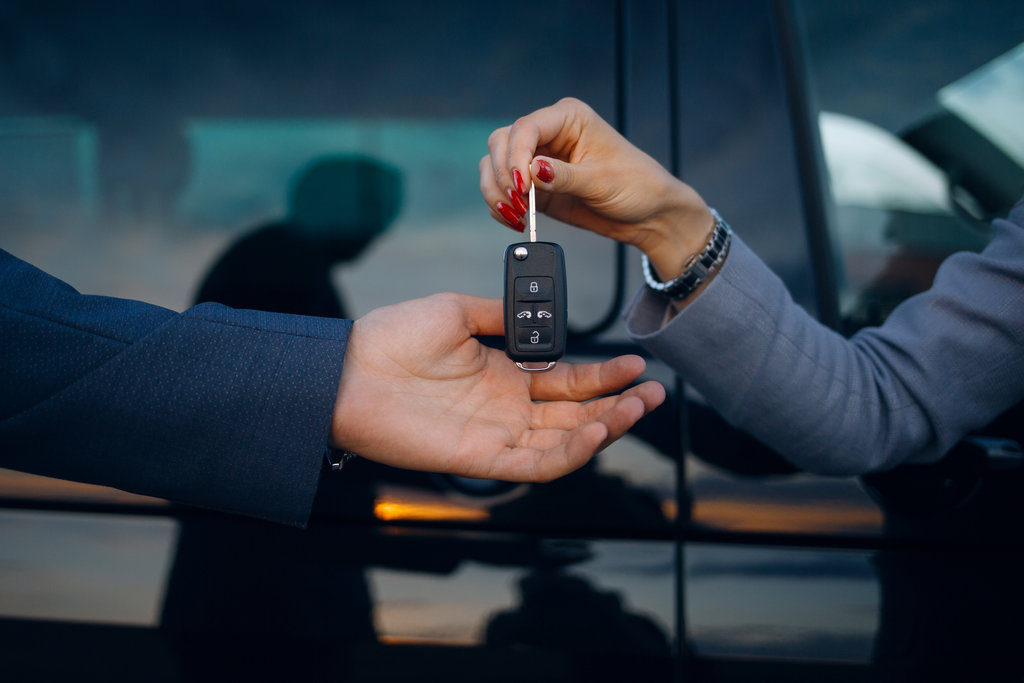
Car accidents involving rental vehicles create a web of responsibility questions beyond typical collision scenarios. When you’re behind the wheel of a rental car and an accident occurs, liability depends on multiple factors, including who caused the crash, your insurance coverage, and the rental company’s policies.
At the Eberst Law Firm, we help Florida accident victims navigate these complex situations. Our attorneys understand how rental car accidents differ from regular vehicle collisions and work to protect your rights when insurance companies try to shift responsibility.
Determining Fault in Rental Car Accidents
The person who caused the accident remains primarily responsible, regardless of whether they were driving their own vehicle or a rental. Car accident liability follows standard negligence principles, meaning the at-fault driver’s insurance typically covers damages to other parties.
However, rental car scenarios introduce additional complexity. If you caused the accident while driving a rental, you may face coverage from multiple sources. Your personal auto insurance often extends to rental vehicles, providing the same liability protection you have for your own car. When your personal coverage proves insufficient, the rental company’s insurance may provide secondary coverage.
Rental car companies also offer optional coverage at additional cost. This coverage can include collision damage waiver (CDW), supplemental liability insurance, and personal accident insurance. These options may provide additional protection, but understanding exactly what they cover requires careful review of the terms.
Your Insurance Coverage and Rental Cars
Most personal auto insurance policies include coverage for rental vehicles, but this coverage has limitations. Your liability, collision, and comprehensive coverage typically transfer to rentals, subject to the same deductibles and limits as your regular policy.
Credit card companies frequently offer rental car coverage as a cardholder benefit. This coverage usually applies to collision damage to the rental vehicle itself, not liability for injuries or damage to other vehicles. Reading your credit card agreement helps you understand what protection it actually provides.
When multiple coverage sources exist, determining which pays first becomes crucial. Personal insurance typically serves as primary coverage, while rental company insurance acts as secondary. Credit card coverage often requires you to decline the rental company’s collision damage waiver to remain valid.
The Rental Company’s Responsibility
Rental car companies maintain responsibility for providing safe, properly maintained vehicles. If mechanical failure or poor maintenance contributed to your accident, the rental company may bear liability for resulting damages. Vehicle defects can include brake failures, tire problems, or steering issues that create dangerous conditions.
Rental companies must also properly screen drivers and verify license validity. When they rent to unqualified drivers who subsequently cause accidents, they may share liability for resulting injuries. Additionally, if rental company employees negligently maintain vehicles or fail to address known safety issues, this negligence can contribute to accident liability.
Some states have specific laws governing rental car company liability. These laws may limit the rental company’s responsibility or establish specific requirements for insurance coverage. Understanding your state’s regulations helps clarify what protection you can expect.
Insurance Complications and Claim Disputes
Insurance companies often dispute coverage in rental car accidents, each trying to minimize their financial responsibility. Multiple insurers may argue about which policy provides primary coverage, creating delays in claim resolution. These disputes can leave accident victims without prompt compensation for medical bills and vehicle repairs.
Rental car agreements contain complex language about coverage and liability that many consumers don’t fully understand. Insurance adjusters may use this complexity to deny or reduce claims. Having legal representation helps protect your interests when dealing with these complicated insurance situations.
Documentation becomes especially important in rental car accidents. You should photograph the rental vehicle, obtain the rental agreement, and collect all insurance information from involved parties. This documentation helps establish coverage and prevents insurance companies from denying legitimate claims.
Steps to Take After a Rental Car Accident
Contact law enforcement immediately, even for minor accidents. Police reports provide official documentation of what occurred and can be crucial for insurance claims. Seek medical attention if you feel any pain or discomfort, as some injuries don’t manifest symptoms immediately.
Notify the rental car company as soon as possible. Most rental agreements require prompt notification of accidents, and failure to comply may affect your coverage. Also, contact your personal insurance company to report the claim and understand your coverage options.
Gather evidence at the accident scene, including:
- Photos of all vehicles involved
- Contact information for other drivers and witnesses
- Insurance information from all parties
- The rental agreement and any coverage documentation
- Police report number when available
Avoid making statements about fault to any insurance company without legal advice. Insurance adjusters may try to use your statements against you later.
Get Legal Help with Your Rental Car Accident
Rental car accidents involve multiple insurance policies and complex liability questions that require professional legal guidance. At the Eberst Law Firm, we’ve helped countless Florida residents navigate these challenging situations and secure the compensation they deserve. Our team understands how rental car coverage works and fights to protect your rights when insurance companies try to deny or minimize your claim.
We offer free consultations to discuss your case and explain your legal options. Don’t let insurance companies take advantage of rental car complexity to reduce your compensation. Call us at (772) 225-4900 or contact our office today to speak with an experienced attorney about your rental car accident case.
